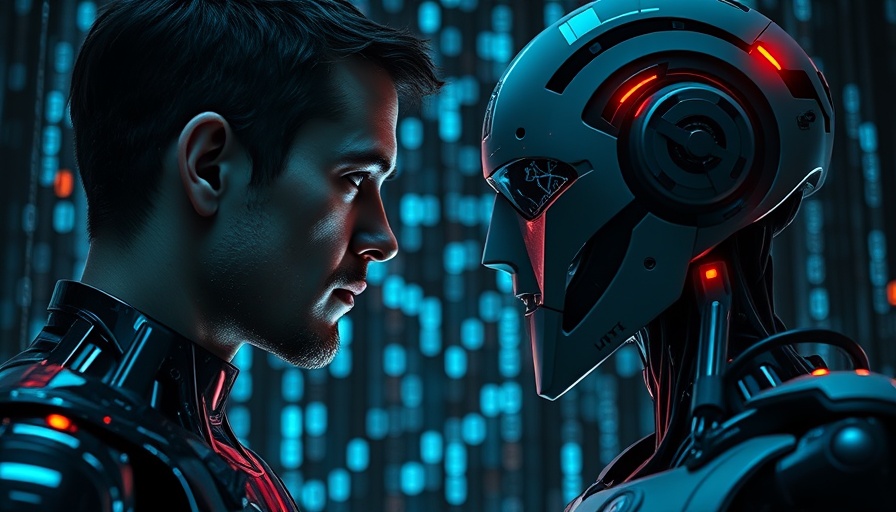
Revolutionizing Industrial Workflow Efficiency
In the rapidly evolving landscape of industrial automation, Siemens stands at the forefront with its groundbreaking introduction of AI agents intended for the Industrial Copilot ecosystem. Revealed at Automate 2025 in Detroit, these agents represent a transformative leap from traditional AI assistants, which merely respond to inquiries, to fully autonomous systems capable of executing complex workflows independently.
How the New AI Agents Work
Siemens' new architecture employs a sophisticated orchestrator that operates much like a master craftsman. This orchestrator deploys specialized AI agents to tackle intricate tasks throughout the industrial value chain. Importantly, these agents are designed to enhance productivity by understanding intent and improving their performance through continuous learning. They can seamlessly access external tools and engage with other agents, making them adaptable to various scenarios encountered in the industrial environment.
Anticipating a 50% Boost in Productivity
As articulated by Rainer Brehm, CEO of Factory Automation at Siemens Digital Industries, the vision is clear: by automating processes, companies could see productivity increases of up to 50%. This bold prediction isn’t just optimistic speculation; it represents a fundamental shift in operational methodologies for industrial enterprises. By removing the reliance on human intervention for routine processes, businesses can focus their workforce on strategic decision-making and creative problem-solving.
The Broader Implications of Autonomous Automation
Implementing such advanced AI agents goes beyond mere efficiency gains. It raises pertinent questions about the future of labor and skill requirements in automation-heavy industries. Companies will need to prepare their employees for roles that complement AI capabilities rather than compete against them. This shift could lead to a significant reevaluation of workforce training programs, focusing on skills that enhance human-AI collaboration.
Addressing Ethical Considerations in AI
With great technological advancements come notable ethical implications. The introduction of AI agents in industrial settings provokes discussions around job displacement and the ethics of machine autonomy. How do we ensure that AI complements rather than replaces the human workforce? Establishing a framework for responsible AI deployment will be crucial as companies integrate these tools into their operations.
How Businesses Can Prepare for AI Integration
For CEOs and marketing managers, understanding this transition is vital. Companies interested in adopting AI solutions must assess their readiness for change. This includes evaluating existing workflows, identifying areas for automation, and investing in training personnel to work alongside AI systems effectively. Engaging employees in this transformative journey aids in fostering a culture that embraces technological advancement.
Looking Forward: The Future of Industrial Automation
The introduction of Siemens’ AI agents is just the beginning of a new era in industrial automation. As these technologies continue to evolve, it’s essential for decision-makers to stay informed about industry trends and advancements. By doing so, they can leverage these innovations to drive both efficiency and growth within their organizations.
In conclusion, the impact of Siemens’ autonomous AI agents is poised to reshape the landscape of industrial manufacturing. For businesses ready to embrace this change, the potential benefits are immense, paving the way for a future where productivity and innovation reign supreme. As the narrative of industrial automation unfolds, staying ahead of the curve will be crucial for any organization aiming to thrive in this new era.
Are you ready to explore how AI integration can transform your operations? Start your journey today and envision the limitless possibilities brought by AI in industrial automation.
 Add Row
Add Row  Add
Add 




 Add Row
Add Row  Add
Add 

Write A Comment